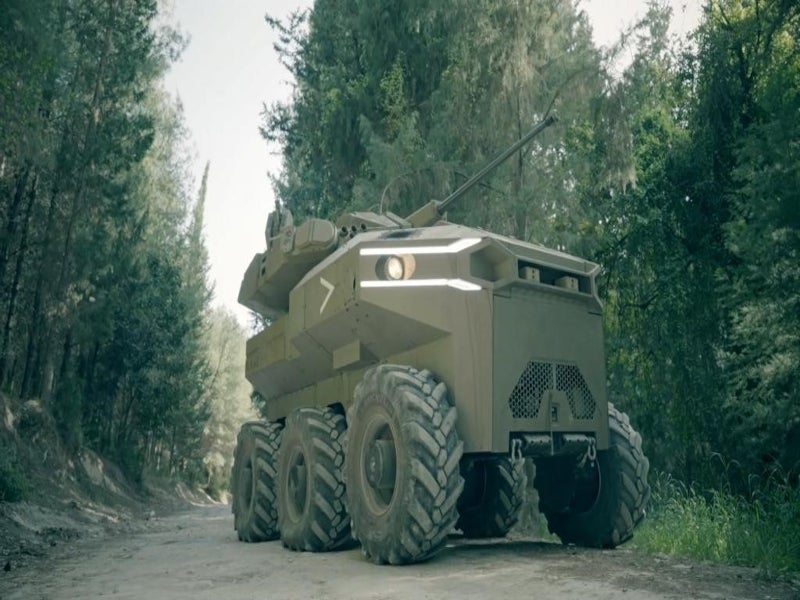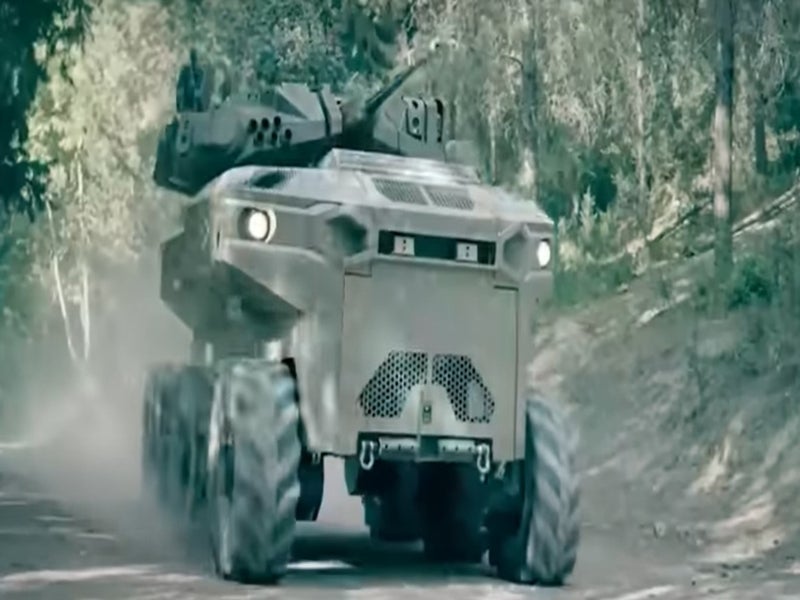The Robotic Autonomous Sense and Strike (ROBUST) is an uncrewed medium robotic combat vehicle (M-RCV) developed by the Israeli Ministry of Defense (MoD) in collaboration with Israeli security industries led by Elbit Systems.
The multipurpose uncrewed ground vehicle (UGV) incorporates advanced robotic technologies to expand the Israeli Defence Forces’ (IDF) autonomous combat capabilities in all-terrain and all-weather battlefield conditions.
ROBUST M-RCV was launched at Elbit Systems’ pavilion at the Eurosatory Defence and Security Exhibition held in France in June 2022.
The robotic unmanned vehicle was jointly developed by the Israeli MoD’s Directorate of Defense Research and Development (DDR&D), and the Tank and APC Directorate. It was developed as a technological demonstrator in line with the autonomous battlefield concept.
Israeli defence and security companies, including Elbit Systems, Foresight and Israeli defence company BL supported the development of the vehicle, which comes with an open architecture to integrate future capabilities with a wider range of robotic tools and functionalities.
The Israeli MoD was expected to conduct field tests of the M-RCV in representative scenarios in 2023.
ROBUST M-RCV design details
ROBUST M-RCV is a 6×6 advanced, lethal multipurpose UGV featuring advanced manoeuvring capabilities, along with the capacity to transport diverse and heavy mission loads and an integrated system for transporting and receiving uncrewed aerial vehicles (UAVs).
The vehicle’s design focuses on operational effectiveness, simplicity, limited operator involvement, and integration within diverse unmanned fleets.
Weighing more than 5t, the vehicle is based on the advanced BLR-2 robotic combat platform provided by BL.
The UGV is armed with a 30mm autonomous turret developed by the Tank and APC Directorate for the Eitan armoured personnel carrier.
It possesses advanced capabilities for independent forward reconnaissance and effective combat performance across various terrains.
The ROBUST is fitted with a capsuled drone for conducting forward reconnaissance missions. It also features an array of passive sensors developed by Elbit Systems and Foresight.
The vehicle provides independent sights for the commander and gunner and can operate seamlessly both day and night, regardless of the weather conditions.
Autonomous features of the ROBUST M-RCV
The ROBUST M-RCV is driven by a virtual driver based on an edge artificial intelligence (AI)-powered autonomous driving module. The virtual driver incorporates 3D visualisation and passive sensing systems for visual and thermal sensing. It enables the vehicle to autonomously plan its path, detect obstacles, and dynamically adjust its route in real-time.
The vehicle features a virtual gunner equipped with capabilities for automatic target recognition, auto-tracking for multiple targets, a smart fire plan, and context-based target prioritisation.
The M-RCV is capable of operating UAVs autonomously, with a robotic arm protruding from the rear side of the vehicle to facilitate take-off and landing of the capsuled drone, which offers 360o situational awareness of the battleground.
Armament aboard ROBUST UGV
The MATE30 unmanned turret system for the ROBUST UGV can be armed with a 30mm automatic cannon and a 7.62mm co-axial machine gun.
The vehicle can also be armed with a missile launcher from Israel Aerospace Industries (IAI) and Rafael Advanced Defense Systems’ Spike fire-and-forget anti-tank guided missiles (ATGMs).
ROBUST M-RCV uses the Iron Fist active protection system (APS), and fire control and mission management systems provided by Elbit. The company also provided a robotic autonomous kit and situation awareness systems for the vehicle.
ROBUST UGV testing in the UK
ROBUST was one of the three UGV platforms selected to participate in a first-of-its-kind trial organised by the UK Defence Equipment & Support’s (DE&S) Future Capability Group (FCG) in March 2023 to demonstrate the effectiveness of heavy uncrewed ground systems in battlefield situations.
Milrem Robotics’ Type X RCV and German arms manufacturer Rheinmetall’s Wiesel armoured weapons carrier were the other two UGV platforms that participated in the trial.
The trial was conducted at the British Army’s Armoured Trials and Development Unit (ATDU) in Bovington Camp, Dorset, UK. The UGV systems were tested for criteria such as speed and performance on challenging terrains and communication systems.






